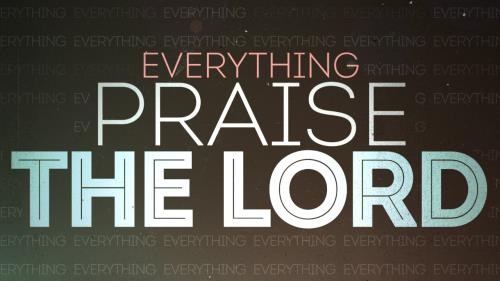-
2 Kings 6:8-23 – "Open His Eyes And Let Him See"
Contributed by Matt Stone on Sep 7, 2016 (message contributor)
Summary: Elisha's servant sees God's presence, protection and provision when Elisha prays, 'Open his eyes and let him see." How might we see as God sees?
Aram is at war with Israel, but the King of Israel seems to be able to predict Aram’s army’s movements. Everywhere Aram’s army goes, Israel is one step ahead – so much so that the King of Aram assumes he has a spy in his camp. But he hasn’t got a spy – what’s happening is God is speaking to the prophet Elisha and giving him inside information – divine knowledge and divine vision – and Elisha is passing that knowledge on to the King.
So the King of Aram realises that he needs to do something about Elisha. He sends his army to find Elisha and capture him. So one morning, Elisha’s servant pulls back the curtains and he discovers that their house is totally surrounded by Aram’s army. Just as many of us would do in his situation, he calls out in panic “We are doomed, sir! What shall we do?”
Now we might expect Elisha to come up with a cunning plan to make an undercover exit, or to hide somewhere hoping they won’t be found, or to hand himself over to make things go as smoothly as possible, but Elisha does something much better. He speaks a word of God: “Don't be afraid”, and he prays: “O LORD, open his eyes and let him see!”
God answers Elisha’s prayer, and Elisha's servant looks up and sees the hillside covered with horses and chariots of fire. God’s protection becomes visible and God rescues Elisha, Elisha’s servant and indeed the whole nation of Israel.
So what do we learn from this story? I want to focus on one line this morning: “O LORD, open his eyes and let him see!” There’s a lot in this story about blindness and sight. First of all, Elisha and Israel are able to see as God sees – they are given divine knowledge and vision of Aram’s movements. But then Elisha’s servant is blinded. He doesn’t see as God sees – He sees as men see. Elisha has to pray for God to open his eyes. Then the Arameans are blinded – not physically as we might imagine; the word in Hebrew has more of the sense of their vision being confused – until they are in the Israelite camp and their eyes are opened again.
It all raises a question for us: Are we blind, or do we see as God sees? It’s a theme that runs through scripture. Jesus says that many won’t understand his parables because they have been blinded to the truth. Paul says in 2 Cor. 4:4 that, “The god of this age has blinded the minds of unbelievers, so that they cannot see the light of the gospel that displays the glory of Christ...” As Jesus died on the cross, he prayed, “Father forgive them for they do not know [they do not see] what they are doing” – Jesus saw God’s plan, but those who nailed him to the cross were blind to what God and what they were doing. As Stephen was stoned to death, those who killed him couldn’t see what Stephen could see – they were blinded to God’s reality – but Stephen had the face of an angel as he saw the glory of God as (for him) the ever-reigning heavenly court was superimposed over the temporary and sham earthly court.
But what about us? How do we see? Elisha’s servant was blind to three things – which we also can be blind to:
1. God’s presence
2. God’s protection
3. God’s provision
So: First, we need to have our eyes opened to God’s presence
God is omnipresent – He’s everywhere – but that doesn’t mean we always see Him. Jesus says, “where two or three are gathered, there I am amongst them,” which suggests that there are ways of seeing and encountering God’s presence in our lives in a much clearer way. It’s like bringing a lens into focus; at the start we know God’s there, but He’s blurry – obscured by everything around Him and by what else grabs our attention. But when we focus the lens, there we see Him much more clearly.
One of the ways of seeing and encountering Jesus is by meeting together and by being united in our worship and prayer. I have sensed it here at our prayer meeting on a Sunday morning before – Jesus’ presence is almost tangible as we’re united as his people. Another way, is through our own personal prayer and/or Bible Study. Suddenly, the lens is brought into focus through a time of silence when the peace of God descends on us, or from reading a particular verse in scripture that draws us to God. Another is going to what some people call a ‘thin place’ – a place of beauty and wonder where the distance between heaven and earth seems almost paper thin. In these places, and in others, we see in a much clearer way than normal.

 Sermon Central
Sermon Central



